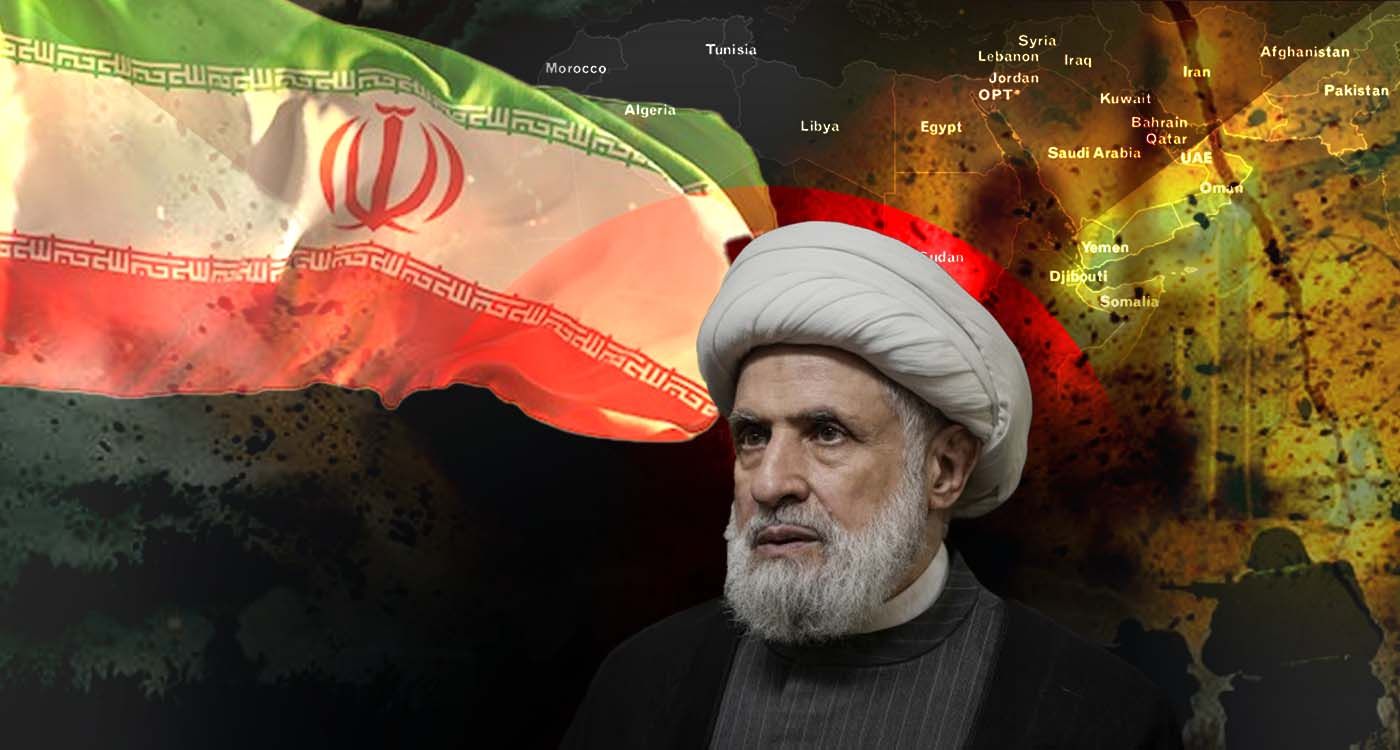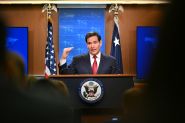
Hezbollah and its weapons, a never-ending tale. Same story, on repeat. Giving up the arsenal? Never. Without it, there is no arbitrary power, no rent to collect. And like any loyal client, Hezbollah clings to its dealer: Iran.
Each time an Iranian leader takes the stage or embarks on a “diplomatic” tour, the pattern is predictable. Days later, Hezbollah’s secretary-general surfaces from his secure bunker to deliver another speech, louder, more threatening and emptier than the last. Tehran speaks in Persian, the echo rolls through Beirut in Arabic.
Behind the noise, the maneuver is crystal clear. Iran is laying the groundwork for a new negotiation with Washington over its nuclear program, while the specter of a European “snapback” looms in the coming days. This mechanism could reinstate the sanctions from the 2015 deal, a move that could push Iran’s economy to the brink. To save its regime, Tehran plays its trump card: regional chaos.
The message is blunt: “Undermine our interests, and we will unravel the Middle East’s fragile balance.” It is pure blackmail, with Hezbollah as its prime exhibit.
Recent events have made the reality unmistakably clear. On Monday, as a US delegation of envoys and senators arrived in Beirut to reaffirm their support for the Lebanese government’s decision to disarm militias and restore the army’s monopoly on weapons, Hezbollah’s secretary-general greeted them with a threatening speech, running completely counter to the state’s aspirations. The message was stark and contemptuous: the government may make promises, but the militia holds real power, and no one is capable of disarming it.
Like the Houthis in Yemen or the militias in Iraq, Hezbollah has received its instructions: raise the volume, multiply threats, fire a few rockets from Yemen if needed, even if it means enduring 50 Israeli airstrikes in retaliation, as took place last weekend in Sanaa. Anything goes to remind the West that the key to regional stability lies in Tehran.
In reality, it is all smoke and mirrors.
Yet, the morbid show must go on. Not a week passes without a recorded message from Hezbollah’s secretary-general being broadcast, set against a neutral, red or blue background so that his location remains undisclosed. After the deaths of its top leaders, Hezbollah is right about one thing: paranoia is key. The leaders of the pro-Iranian militia now communicate only through scraps of paper, scribbled and exchanged under the table. Every other channel has been infiltrated by the Israelis.
Meanwhile, Lebanon struggles to free itself from these ties, held hostage by a militia that confuses resistance with submission.
One fact remains: as long as the Iranian regime survives, Hezbollah will endure. But the regime is a powder keg – Persians, Azeris, Kurds, Arabs, Baloch – a fracturing mosaic, an Islamic Republic that is a republic in name only.
For now, regional powers are reluctant to confront the regime’s collapse, lacking any viable alternative. The Gulf states fear a fragmented Iran that could send millions of Shia refugees flooding their borders. Meanwhile, Turkey has little appetite for managing 12 million Iranian Kurds. Faced with this scenario, Ankara opts for the status quo rather than risk cross-border chaos.
The day this house of cards collapses, Hezbollah will lose its lifeline. Only then will Lebanon be able to breathe. For now, we are left with Tehran’s copy-and-paste speeches and the warlike posturing of its local proxy. By hiding behind curtains and scribbling messages, Hezbollah looks less like a regional player and more like a purring machine for Tehran, noisy but ultimately useless.
As Albert Camus said, “The absurd is continuing when everything cries failure.” Welcome to absurdia.




Comments